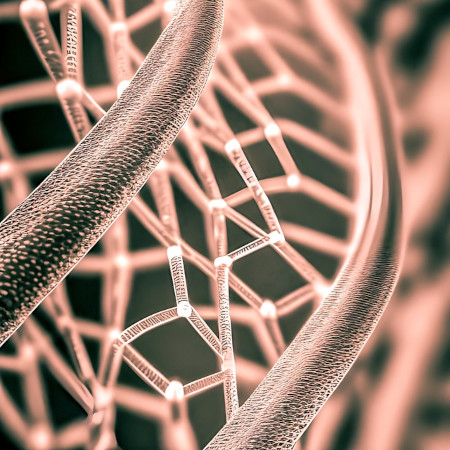Industrial PhD Programs serve as powerful catalysts for economic development. They represent a structured partnership between universities, companies, and startups, strategically forging robust networks and innovation clusters. This collaboration seamlessly aligns the academic landscape with the industry's needs and resources, creating a dynamic synergy. By providing doctoral students with a distinctive chance to acquire hands-on experience and contribute to research projects directly relevant to the industrial sector, these programs stand as a cornerstone for fostering both academic excellence and industrial advancement.
The Doctorate in Science and Technology of Bio and Nanomaterials is a joint Ph.D. programme associated with the Kyoto Institute of Technology, Japan (Double Degree, Ph.D. course in Material Chemistry), the National Cancer Institute (Centro di Riferimento Oncologico, CRO) in Aviano (PN), and numerous companies engaged in research and development activities.
The program has a duration of 3 years, including a study period at partner universities abroad and within companies. It provides internationally competitive research training with the aim of acquiring in-depth knowledge in research areas at the interface between physical, chemical, materials, medical and biological areas. The Departmental structure allows for the development of research across various disciplines with a "short-chain" management approach, meaning that projects requiring a broad spectrum of skills are handled within the Department of Molecular Sciences and Nanosystems.
The diverse skill set exhibited by incoming individuals necessitates the anticipation of personalized "alignment" paths, particularly addressing fundamental aspects of disciplines not previously encountered during their academic journey.
The aim of this PhD programme is to develop the following skills:

The primary objective of this doctoral program is to provide the skills necessary to engage in and coordinate highly qualified research activities in various sectors related to the development of nanotechnologies, primarily applied in the "bio" and "medical" domains, at universities, hospitals, public institutions, or private entities. Specifically, researchers will be trained with a solid multidisciplinary background in Physics, Chemistry, and Biology, enabling them to take on roles of high responsibility in the design, synthesis, and characterization of bio- and nano-materials intended for biomedical applications. This preparation is crucial for addressing the increasingly pressing challenges related to the preservation of health and the environment.
The programme is taught entirely in English. Students need to have an English language proficiency of at least B2 level.
Laboratories at DSMN are provided with chemical hoods to conduct synthesis of organic and inorganic materials and modern analytical equipment. Departmental laboratories are also available for the use of advanced analytical instruments such as transmission and scanning electron microscopes (TEM and SEM), multinuclear NMR spectrometers, atomic force microscopes, electrochemical apparatuses (potentiostats, impedance analyser, scanning electrochemical microscope). New laboratories for molecular and cellular biology research include outstanding platforms for molecular and cellular biology studies such as: cell culture hoods, CO2 incubator, real-time PCR, Fluorescence Microscope, flow cytometry cell analyser, fluorescence-activated cell sorting (FACS) system, Gel Doc imaging instrument and documentation system, Digital Dispenser for multiple reactions, Plate reader for absorbance, fluorescence and luminescence.
The scientific area library (BAS) and Ca' Foscari Digital Library permit the access to the network of the most widely used databases and scientific journals.
Laboratories in CRO are equipped to train graduate students in advanced experimental studies in the various fields of chemistry, biology, and molecular and transversal medicine. Every single CRO laboratory is provided with basic and advanced equipment, organized in core facilities, such as the latest DNA sequencer, imaging and flow cytometry. The Scientific Library is specialized in oncology and related biomedical sciences.
The Department of Molecular Sciences and Nanosystems (DSMN) utilizes synergies and complementary expertise among its members. The department's research activities are characterized by strong interdisciplinary collaboration stemming from the diverse skills of its faculty. It primarily focuses on four themes: Biology, Chemistry, Physics, and Engineering.
The highly multidisciplinary environment, involving a wide array of disciplines, will have a strong impact on the professional level of PhD graduates in Science and Technology of Bio-Nano Materials.
Although the academic path may seem the natural following step, it represents only one of many opportunities.
Indeed, thanks to the high interdisciplinary training, the graduates will gain the ability to overcome communication barriers across disciplines and will acquire a very peculiar and highly valuable profile.
Major employment possibilities are offered by research at public and private institutions. Furthermore, problem solving and management ability skills also open up new attractive prospects at the interface between technical and managerial roles as consultants in technology transfer o to governmental and European agencies, IP protection experts, and as entrepreneurs in the field of nano and biotech, and of advanced materials for a wide range of sectors such as sensors, pharma and so on.
In terms of occupation, just to provide some figures, three years after completing the PhD program in Science and Technology of Bio-Nano Materials, 28% of graduates have chosen the academic research, while 72% have found a job in public and private research centers and companies.